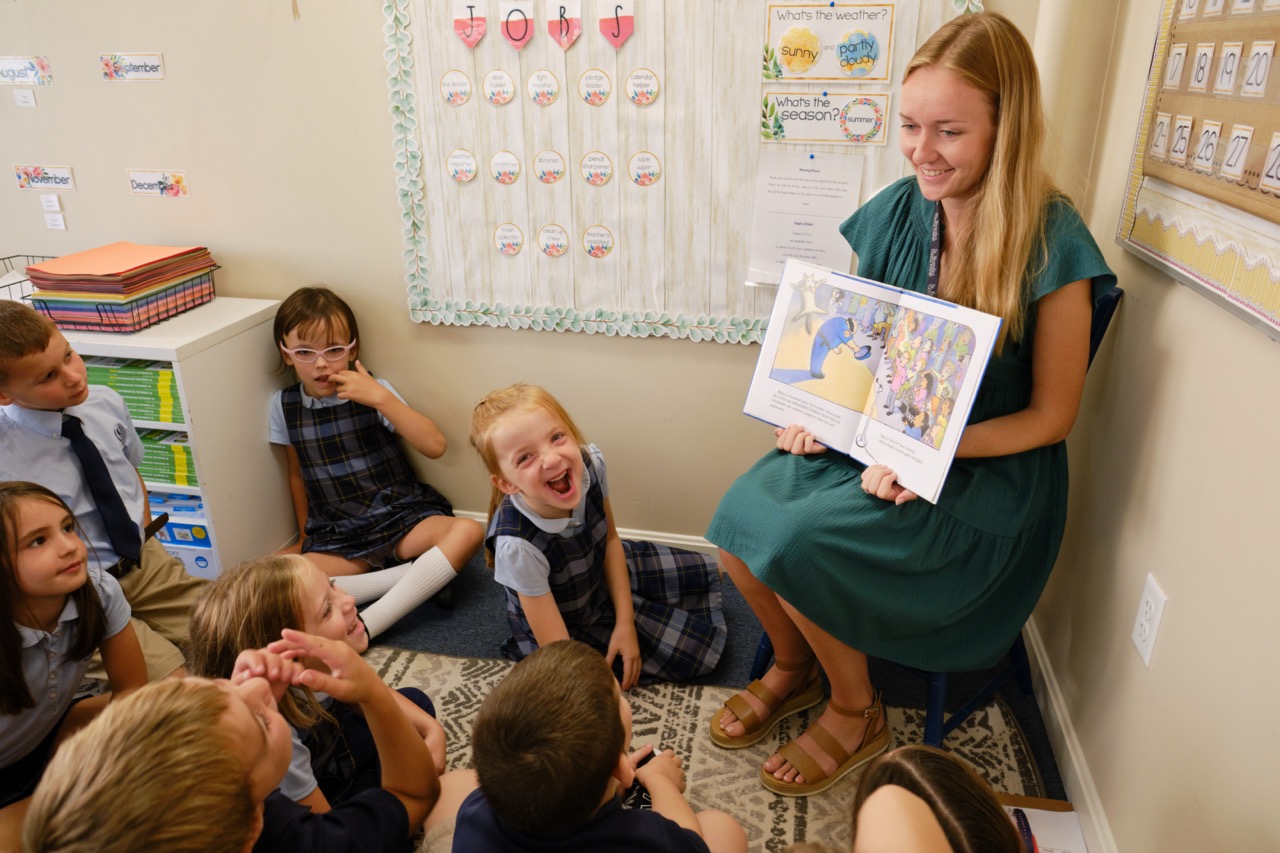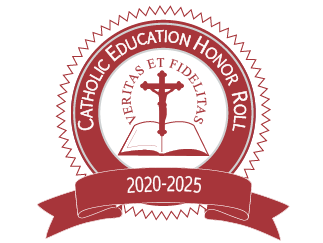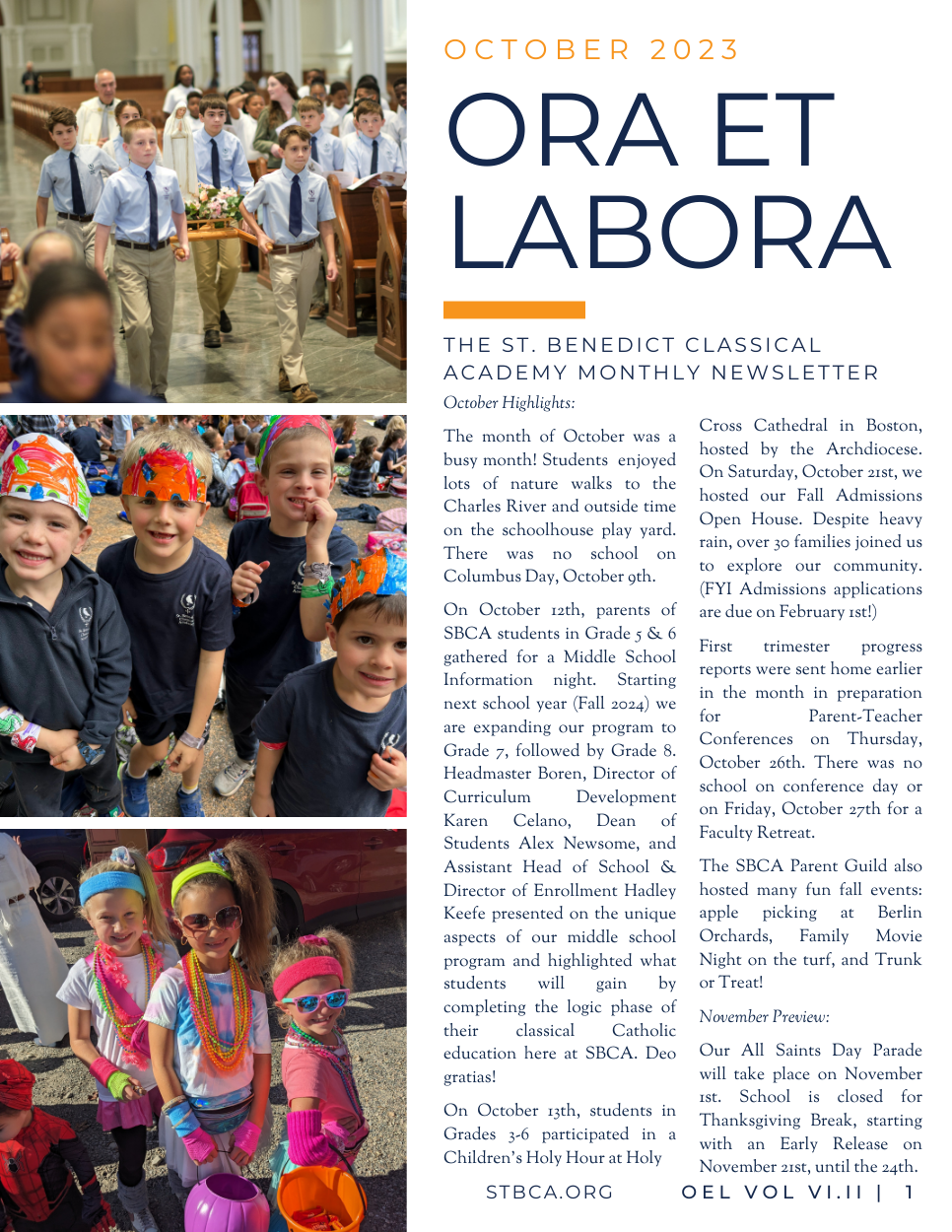What is Catholic classical education? Simply put, it is an education that strives to form students in faith, wisdom, and virtue by drawing on the richness of the Church’s intellectual tradition and educational approach. It sees as its goal not simply the transmission of facts or training in skills, but the formation of whole persons who are capable of genuine freedom as sons and daughters of God. Such an education strives to empower students to discern the truth, love the beautiful, and choose the good. Because we affirm that God is the source of Truth, Goodness, and Beauty, we believe that this education ultimately enables students to fulfill the end for which they were made: “to seek, know, and love God with all their hearts, minds, and strength” (Catechism of the Catholic Church #1).
Catholic classical education is rooted in a philosophical and theological understanding of the human person and his relationship to the Truth. It flows from the following convictions that stem from our Catholic faith:

The Methods of Catholic Classical Education
Because of the philosophical commitments of Catholic classical education, such education adopts a distinctive pedagogical approach. This approach affirms that the human person is made with a God-given capacity to know the truth and strives to teach in accordance with that capacity. While this is not an exhaustive list of everything that makes Catholic classical education distinctive, here are a few of the key features our found in our Catholic classical classrooms:
Further Resources
To read more about Catholic classical education and classical education in general, see:
- Holy See’s Teaching on Catholic Schools by Archbishop J. Michael Miller
- Divini Illius Magistri by Pope Pius XI
- Gravissimum Educationis by Pope Paul VI
The following documents provide an overview of classical education though they are not specifically Catholic in outlook:
- The Lost Tools of Learning by Dorothy Sayers – This seminal essay in classical education lays forth the case for recovering classical pedagogy in the modern world.
- An Introduction to Classical Education: A Guide for Parents by Dr. Christopher Perrin – This short treatise explains the history of classical education as well as its differences from progressive modern education.
Explore Our Curriculum
Explore Our Curriculum
Students are guided in an integrated framework to learn fast the beauty, grandeur, glory, order, connectedness and symmetry of the world around them.
Explore Enrichment Activities
Explore Enrichment Activities
After-school enrichment activities foster well-rounded, virtuous students and individuals.
Apply
Apply
Our students come to understand education for what it truly is: a noble, joy-filled pursuit, worthy of their dedication and focus.




